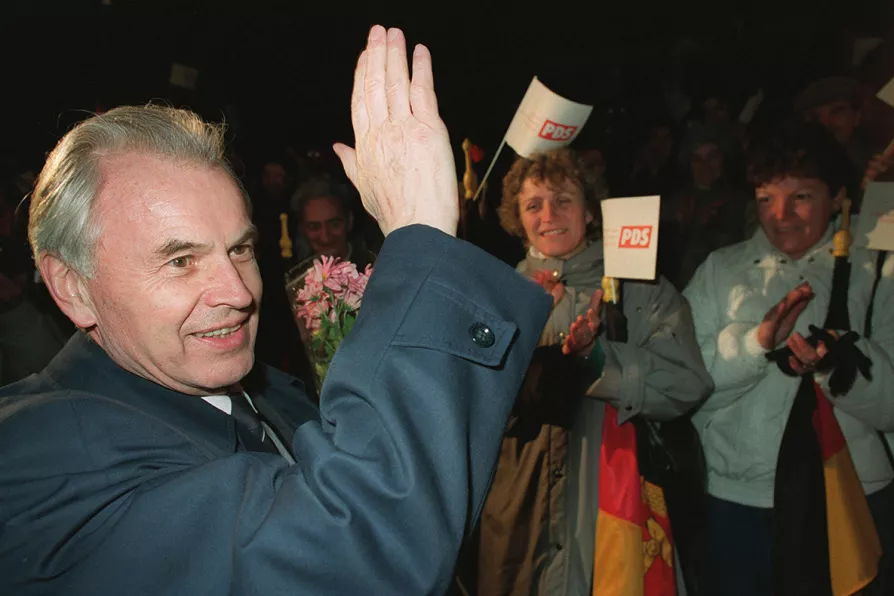CHRISTOPHE DOMEC speaks to CHRIS SMALLS, who helped set up the Amazon Labor Union, on how weak leadership debilitates union activism and dilutes their purpose


HIGHLY regarded by the many who knew and knew of him, it would be no exaggeration to say that Hans Modrow was the son of the German Democratic Republic, of which he was the last-but-one Prime Minister. Only five when the Nazis came to power, his generation was overshadowed by hatred, fascism and war. He trained as a machinist. Towards the end of the war, he was conscripted into the Volkssturm (a mass militia set up by Hitler in 1944).
He was taken prisoner of war by the Red Army and went to the Soviet Union. There he attended an anti-fascist school. In 1949 he returned to the east of Germany, the part which then became the German Democratic Republic (GDR). He worked again as a machinist and joined the GDR’s Free German Youth organisation.
He soon joined the Socialist Unity Party of Germany (SED) – founded in 1946 through a unification of the Communist Party of Germany (KPD) and the Social Democratic Party (SPD) on the territory of the future GDR.

NICK WRIGHT returns to Berlin and finds a city in darkness and political turmoil

JOHN GREEN observes how Berlin’s transformation from socialist aspiration to imperial nostalgia mirrors Germany’s dangerous trajectory under Chancellor Merz — a BlackRock millionaire and anti-communist preparing for a new war with Russia











